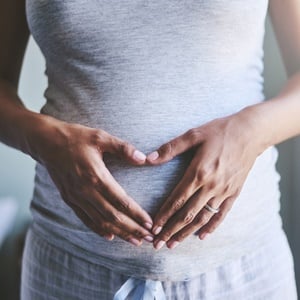
- Nausea and vomiting during pregnancy can have a big impact on the lives of sufferers
- Pregnant women may experience nausea and vomiting all day long
- The term 'morning sickness' is, therefore, incorrect and can cause confusion
As many expectant mothers can unhappily attest, the nausea and vomiting known as "morning sickness" can occur at any time of the day.
In a new study, British researchers analysed diaries kept by 256 women from the day they learned they were expecting until the 60th day of their pregnancy.
While vomiting was most common between 7 a.m. and 1 p.m., nausea was likely all day long. And many women reported vomiting even into the evening.
The most common hour for nausea and vomiting was 9 a.m. to 10 a.m., when 82% experienced nausea and 29% experienced vomiting.
Significant negative impact
About 94% of the women had one symptom or the other during the study, and 58% experienced both, according to findings published recently in the British Journal of General Practice.
By comparing symptoms across the first seven weeks of pregnancy, the researchers found that the chances of nausea and vomiting rose.
The likelihood of nausea was highest in weeks five through seven, and vomiting in week seven. The study only examined the first seven weeks.
"If a pregnant woman experiences sickness in the afternoon she may feel that this is unusual and wrong, or if she experiences no vomiting but feels nauseous all day she might think she is not covered by the term 'morning sickness'," said study author Roger Gadsby. He's an associate clinical professor at the University of Warwick Medical School in Coventry, UK.
Gadsby also noted that those women who have severe symptoms feel the term trivialises the condition.
"Nausea and vomiting in pregnancy (NVP) can have a significant negative impact on the lives of sufferers," he pointed out in a university news release.
"It can cause feelings of depression, of being unable to look after the family, and of loss of time from paid work. Very severe NVP, called hyperemesis gravidarm, is the commonest cause of admission to hospital in the first trimester of pregnancy," Gadsby said.
Image credit: iStock




 Publications
Publications
 Partners
Partners










